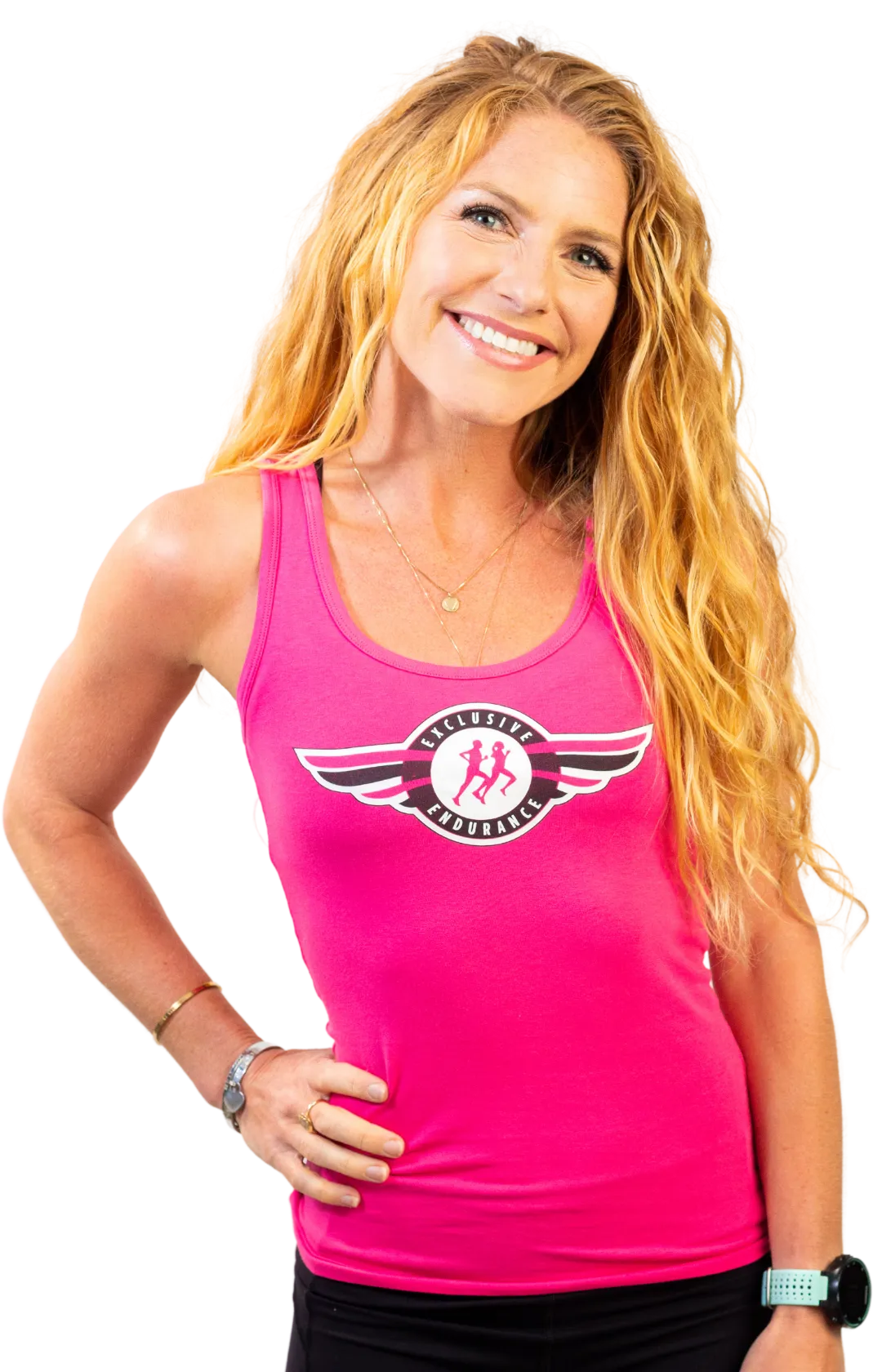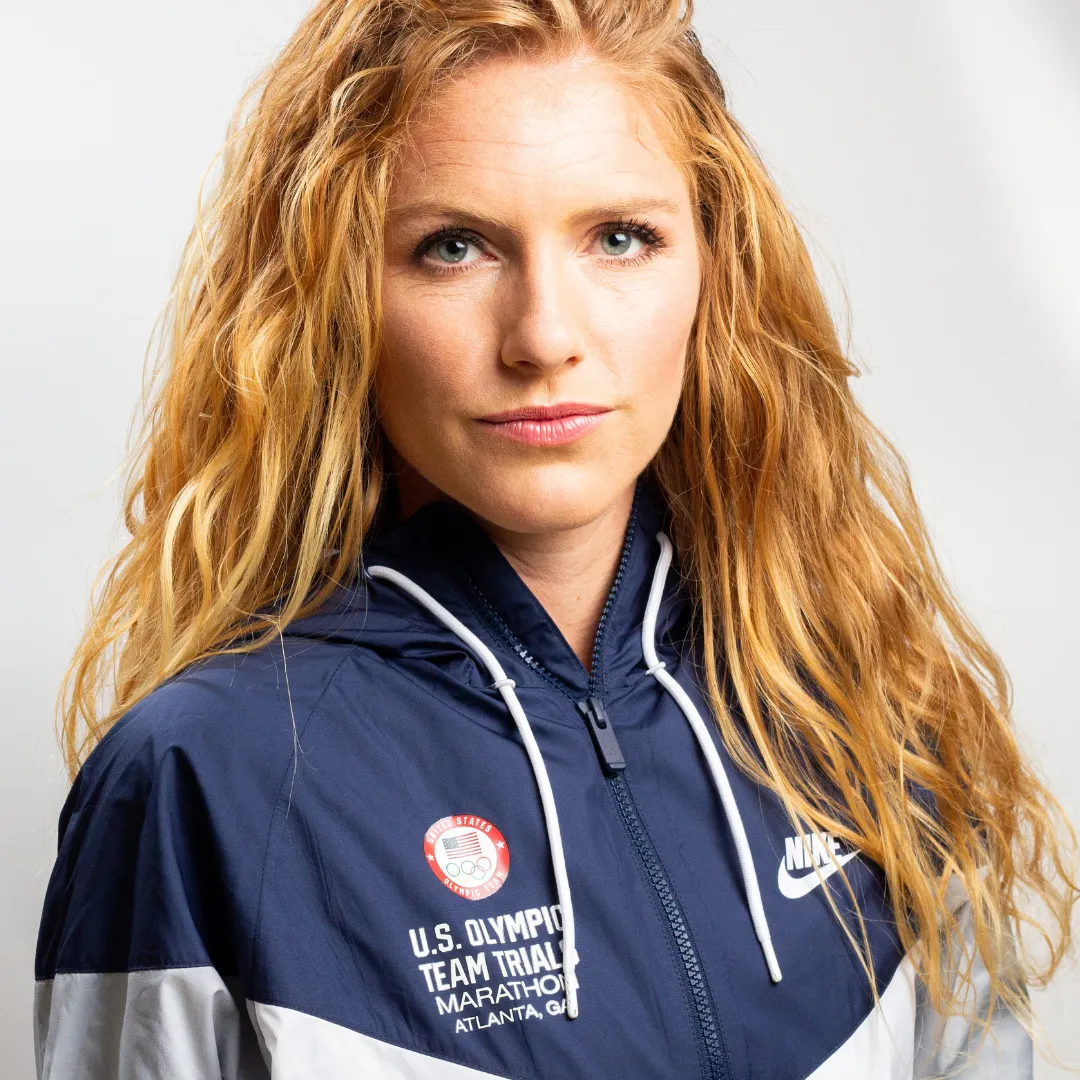
How To Start Running Races, From 5k’s To Marathons
Running can be addictive. Once you start, you might start to consider racing!
I like to teach my athletes about racing early on because it can be a transformative experience. You learn how to be resilient and adaptable in the face of challenge, which helps you grow stronger not only for running but for life!
No matter your level, racing can add a whole new dimension of challenge and fun. So if you have any small itch to race, here’s everything you need to know to prep, plan, and go for it!
1. Pick the right race
It’s important to start small with a race that reflects where you are right now, not where you’ve been in the past or where you want to be.
There’ll be plenty of time to build up to your big goals, like qualifying for the Boston Marathon or hitting a certain race time. For now, pick a race by following these steps:
Choose a distance that aligns with your level of fitness now. In general you can ramp up your mileage by about 10% each week, so keep your starting mileage in mind when deciding your race length.
Look for a date that gives you enough time to train. As a general rule of thumb, you will need about 8 weeks of base mileage training to build a solid foundation. After that, beginners should spend at least 12 weeks training for their first 5K, 16 weeks for a 10K, and 20 weeks for a half marathon. Try to also build in a few weeks of buffer for when life gets in the way, which it inevitably will.
Consider your values. You might pick a race that benefits a greater cause dear to your heart, or one that you can participate in with family or friends. Having a personal connection to the race is a great way to stay motivated and inspired!
2. Train Smart
Once you’ve picked a race, you’ll need a solid race-specific training program. Here’s what you’ll need to do to train smart:
Make sure your training plan includes these key components:
Easy runs (these should be the majority of runs)
Cross training
A long run followed by a rest or easy day
Speed work
Strength training
A taper to to recover before race day

Be honest about how much time and effort you’re willing to put in to train. If you have a hectic family life, a busy work season, or extra travel plans coming up, factor that in and choose a training plan that can consistently fit in your schedule.
Prioritize taking care of yourself and listening to your body. Your body will undergo new changes and challenges throughout training. Listen to your body when you need to rest or take it easy. While it’s important to stay committed to your training plan, it’s more important to avoid injury and burnout so you can stay in the game.
Track progress with a running app or journal. My favorite apps include Strava, Garmin smartwatches, and FinalSurge (which I use with all my athletes). Tracking progress lets you appreciate how far you’ve come and see what’s working and not working.
3. Set mini-goals, big goals, and back up goals

The great thing about running is that you get to define your success! I encourage you to set mini-goals, big goals, and back-up goals to keep motivated.
Mini-goals are milestones you can aim for in your day-to-day training. Maybe it’s to go a certain distance without walking or to reach a specific pace on one of your workouts.
Big goals are typically race goals. They can be ambitious and a bit intimidating, but still within reach. If it’s your first race, your big goal might be to finish it. If you’ve run races before, you might set a goal comeback time!
Back up goals are those goals you’d be satisfied with achieving if your big goal falls through. Sometimes things happen on race day that are out of our control. For example, maybe your big goal is to hit a specific race time, but you get sick or the weather doesn’t cooperate. Your backup goal could be to finish with a smile on your face, still a worthwhile goal!
4. Get help

Finally, following all this advice is a lot easier with expert guidance. A lot of runners join a running group to lean on the support of other runners or work with a running coach.
A running coach will help you tailor your training to your needs and improve your form and results. They provide personalized support that training plans online can’t, which is especially helpful if you’re new or returning or want to race. When life gets busy, you experience injury, or your progress stalls, a good coach is there to help you get unstuck.
If you’re thinking about working with a coach, that’s something I can help with.
Since 2013, I’ve coached dozens of clients from all ages, abilities, and backgrounds. When you sign up with me, I’ll create an all-inclusive customized program for you and your goals. My coaching memberships start at $99/month and are fully virtual, so you can get my support no matter where you are.
If you have a desire to run and reach your goals, I want to help! Check out my Bronze, Silver, and Gold Coaching Memberships Here or schedule a call with me here.
I hope learning about racing has you thinking about it. You never know where your running journey might take you!


















